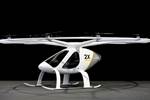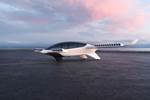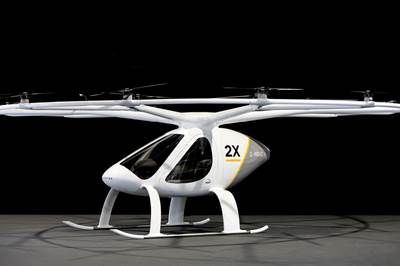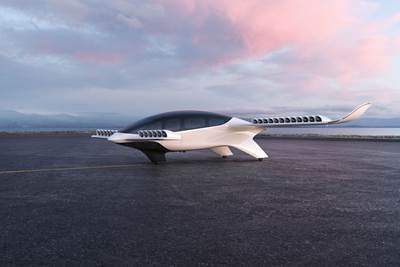Astro Aerospace announces definitive agreement to acquire Horizon Aircraft
Greater access to capital and industry experience expected to accelerate eVTOL innovation and better position for production and commercialization.
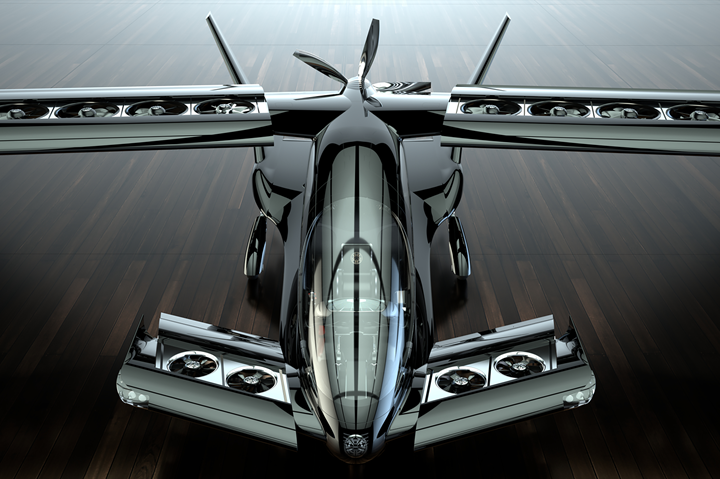
Horizon Aircraft’s long-range Cavorite X5 hybrid eVTOL. Photo Credit: Astro Aerospace, Horizon Aircraft
On April 30 Astro Aerospace Ltd. (Dallas, Tex., U.S.) a developer of electric vertical take-off and landing (eVTOL) aerial vehicles and drones, and Horizon Aircraft Inc. (Lindsay, Ontario, Canada), a developer of advanced eVTOLs, have entered into an agreement under which Astro will acquire privately held Horizon for five million common shares of Astro stock, the material terms of which are disclosed in the company’s related 8-K filing.
The transaction, unanimously approved by the respective Boards of Directors, will reportedly broaden Astro’s capabilities, and enable the company to become a leading eVTOL platform while continuing to invest and innovate. Astro’s acquisition of Horizon is expected to close by May 10, subject to customary closing conditions. Upon closing the transaction, the CEO and Co-Founder of Horizon, Brandon Robinson, will be appointed as President of Astro and will sit on the Board of Directors. Jason O’Neill, Horizon’s chief operating officer, will be appointed executive vice president of Astro.
“Astro and Horizon, two organizations focused on developing innovative air mobility solutions, is a very exciting and promising combination,” says Astro CEO Bruce Ben. “Our aligned business model, enhanced by the complementary expertise and capabilities of the founder-led Horizon team, creates significant opportunities for accelerated growth while simultaneously delivering value to our shareholders.”
Astro’s existing Alta and Elroy programs, combined with Horizon’s team of engineering and design talent, is expected to better position Astro to pursue its goal of commercialization. This approach will emphasize existing technology and elegant design. Additionally, the new funding provided by Astro is said will enable Horizon to accelerate development of its Cavorite X5 eVTOL advanced prototype. Astro believes this new aerospace technology offers significant advantages over current conventional aircraft including lower operating costs, a reduced noise footprint, increased safety and lower carbon emissions.
“The Horizon family has found a great home in Astro and will continue operating with its distinct culture: excellence in product development and a deep passion for aviation,” says Horizon Co-Founder and CEO Brandon Robinson. “Horizon and Astro share in the mission of being at the forefront of eVTOL design and together we will be a more attractive and exciting company for our employees, our partners and our investors.”
Horizon itself has successfully completed more than 200 test flights of its sub-scale prototype Cavorite X5, a five-seat hybrid-electric eVTOL. The primary objective for the sub-scale eVTOL prototype’s test flights is to verify aerodynamics, control systems and transitional flight. For vertical flight, the wing surfaces retract to open its ducted fans before closing again after it achieves a minimum forward speed, reportedly maximizing the craft’s aerodynamic efficiency while lowering operational costs.
The full-scale Cavorite X5, which is expected to travel up to an estimated 450 kilometers per hour with a 500-kilometer range, is designed for reduced hydrocarbon emissions, operation in poor weather and ease of flying for low-time pilots. The aircraft targets urban air mobility (UAM) but also long-range regional air mobility, which is believed to be a currently underserved portion of the market. Horizon contends that the patented fan-in-wing technology enables the Cavorite X5 to be the world’s first eVTOL that can fly the majority of its mission exactly like a normal aircraft.
Related Content
Prepreg compression molding supports higher-rate propeller manufacturing
To meet increasing UAV market demands, Mejzlik Propellers has added a higher-rate compression molding line to its custom CFRP propeller capabilities.
Read MoreAerospace prepregs with braided reinforcement demonstrate improved production rates, cost
A recent time study compares the layup of a wing spar using prepreg with A&P’s TX-45 continuous braided reinforcement versus traditional twill woven prepreg.
Read MorePAL-V, NLR complete composite rotors for Liberty flying car
Rotor blade design spans nearly 11 meters in length for flight, with a mid-hinge to fold and accommodate 4-meter vehicle length while driving.
Read MoreJoby flies two eVTOL aircraft simultaneously in testing milestone
The latest in the company’s flight testing program targets certification testing acceleration and support of its passenger-carrying goals by 2026.
Read MoreRead Next
Volocopter introduces Volocopter 2X eVTOL aircraft at Auto Shanghai 2021
Volocopter and Geely Technology reveal aircraft model, highlighting a cooperation to bring urban air mobility services to the Chinese market.
Read MoreLilium announces seven-seater Lilium Jet, acquisition by Qell Acquisition Corp.
The new, larger eVTOL aircraft is slated to be the combined company Lilium’s first to go into serial production, by 2024.
Read MoreCutting 100 pounds, certification time for the X-59 nose cone
Swift Engineering used HyperX software to remove 100 pounds from 38-foot graphite/epoxy cored nose cone for X-59 supersonic aircraft.
Read More
